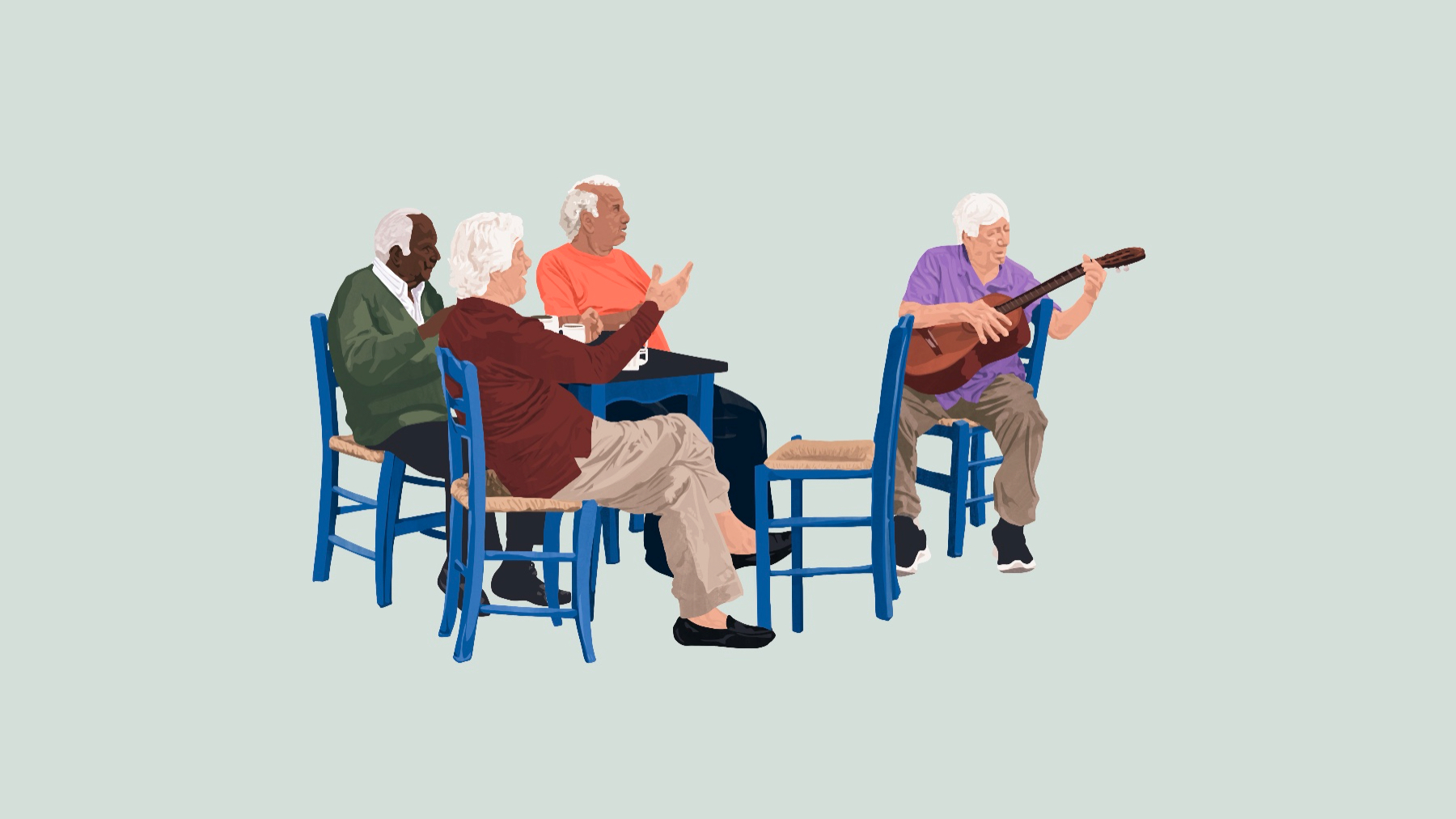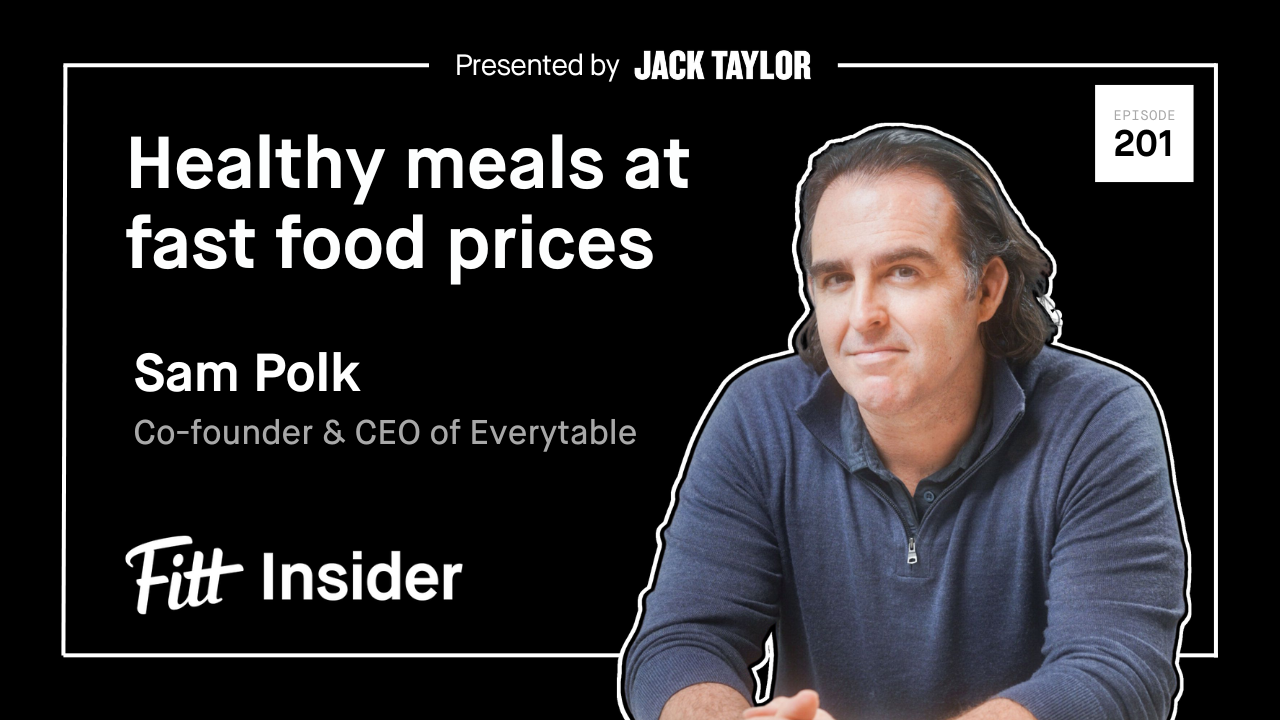Issue No. 248: In the Zone


Living longer has a lot to do with where we live.
Power of Place
The effort to create and maintain healthy habits is often characterized as a struggle — one that requires commitment, willpower, and discipline to endure.
But, what if healthy was the default?
Instead of altering our behavior to conquer unfavorable circumstances, Atomic Habits author James Clear advocates for adapting our surroundings to promote the desired outcome:
“Environment is the invisible hand that shapes human behavior.”
An extension of our environment, social determinants play an outsized role in shaping our well-being, influencing 80–90% of health outcomes.
Speaking to the impact and implications of place, NYU’s vice dean of research Melody Goodman explains:
“Your zip code is a better predictor of your health than your genetic code.”
Recognizing this fact, developers are building homes, hotels, and entire cities with wellness in mind. But new communities exploring the link between location and longevity are also taking shape.
Longevity Blueprint
The Blue Zones Project was created by author Dan Buettner to espouse the learnings of the world’s longest-living people.
Building on previous research, Buettner studied five global regions with the highest concentrations of centenarians (those living past age 100) — including Sardinia, Italy; Okinawa, Japan; Nicoya, Costa Rica; Ikaria, Greece; and Loma Linda, California.
Despite criticism, the project claims to have revealed the key elements of a healthy, happy life. Unsurprisingly, environment played a critical role in promoting healthy aging.
In fact, the nine essential elements found to support longevity were entrenched in culture — encompassing natural movement (i.e. walking, gardening), a mostly plant-based diet, stress-reducing routines (like happy hour or mindfulness), and a sense of purpose, involving family, friends, and community.
Outsiders. With most Americans lacking these essentials, the average lifespan has decreased to 76.4 years, the shortest in two decades.
- As of this year, ~12% of US adults report having zero close friendships.
- Americans average <5K steps per day, with 25% sitting >8 hours daily.
- In 2015, the nearest supermarket for most Americans was over two miles, and ~90% of citizens don’t eat enough vegetables.
Meanwhile, as more brands promise anti-aging and longevity-boosting products, Buettner’s research stands in contrast — a longer life is a product of what you eat, how you move, why you persist, and where you do it.
“The most important variable in that happiness recipe, the ingredient with the most statistical variability, is where you live.”
Built-in. While there are only five true Blue Zones, Alafia, a 2,600-unit affordable housing development in East New York, is following the blueprint.
The $1.2B state-funded project is set to encompass 27 acres and 12 buildings with walking paths, community recreation facilities, social engagement programming, a medical clinic, healthy retail outlets, and a working vegetable farm.
As for the brand that inspired it, Blue Zones LLC recently partnered with public health authorities in Scottsdale, AZ and Sacramento, CA to optimize local infrastructure for improved well-being.
TBD. Unlike naturally occurring Blue Zones, where healthy habits are more like traditions passed down from a bygone era, communities attempting to engineer health face an uphill battle in persuading more Americans to walk instead of drive, cook their own meals, turn off their phones, and prioritize quality time with loved ones.
Punchline: The unfortunate secret of the Blue Zones may be that all the “advancements” we’ve made in the past century to create an easier life are the same things that have robbed us of the physical, emotional, mental, and social strength required to make it to 100.
🎙 On the Podcast

Everytable co-founder & CEO Sam Polk discusses democratizing healthy food.
We also cover: pricing the menu based on a community’s income levels and his view on food as medicine.
Listen to today’s episode here.
🤝 Human coaches make AI health apps more effective
In a study of more than 65K users, Stanford researchers found AI weight loss apps are more effective when paired with human coaches.
Customers on combined AI + human coaching plans lost 74% more weight than those on AI-only plans.
Users with human coaches also set higher goals, tracked food, and logged weight more consistently.
Summing up their findings, the research team noted the importance of personalization and the limits of standardized advice, adding: “a one-size-fits-all approach might not be most effective.”
Man vs. machine. As AI innovation ramps up, the debate over technology as a human replacement vs. supplement intensifies.
Although AI-powered apps enable personalization and accessibility while reducing provider burnout, they lack the intangibles of human connection. Meanwhile, human coaches assist people through the psychological tolls of lifestyle change, offering accountability and emotional support.
Humans in the loop. The study suggests the biggest hurdle to behavior change isn’t knowing what to do but sustaining motivation to do it.
Bridging the gap between hard data and soft skills, human coaches shine where AI falls short, translating metrics and tailoring instruction to deliver tangible results.
With more consumers seeking one-on-one coaching, companies delivering accountability-as-a-service—by seamlessly pairing in-app content and health data with human touch points—will become the gold standard for everything from fitness to nutrition, sleep, and mental health.
Punchline: AI may have democratized health insights, but a human touch adds unparalleled value. Armed with wearables, computer vision, and digital progress reports, empathetic coaches with accurate AI will be the new paradigm for personal training.
💪 Join the Movement
From fitness to wellness to healthcare, movr’s B2B solution delivers personalized movement health at scale.
Backed by science, its assessment and exercise prescription methodology improved functional movement, flexibility, and muscle endurance for clinical trial participants in less than five minutes per day.
Making movement health more accessible, movr’s evidence-based, easy-to-integrate technology can be plugged into any health platform with just a few lines of code.
Ready to unlock more in-platform engagement while helping your users move and feel their best?
SPONSORED
💊 Alo enters wellness supplements
Stretching the limits of its lifestyle brand, the activewear company debuted a line of ingestible beauty and wellness supplements.
Stacking sales. The Alo Stackable Wellness System launched with single-serving gel packs of vitamins, minerals, “hormone-balancing” adaptogens, and more targeting skincare, immunity, and physical recovery.
Pushing further into high-margin, recurring purchases, Alo plans to expand the stack with seven capsule-form supplements dropping in January.
Expanding on all fronts. Alo’s new beauty ingestibles—some of which sold out on the first day—are representative of the brand’s growing empire. Catering to loyal customers, Alo wants to show up in every aspect of their days.
- Alo Moves, its digital fitness platform, added a nutrition category via partnership with Bonberi in March and will debut SYNCD, personalized programming matched to women’s hormonal cycles, this month.
- In May, Alo entered footwear, with its unisex lifestyle sneaker selling out in under 30 minutes.
- Alo signed a third-party retail agreement for its beauty and wellness segment, with products entering Sephora on September 8.
Breaking new ground. The brand is also growing its footprint, opening stores around the globe and in the metaverse, with a VR shopping experience on Meta Quest complete with wellness tutorials.
Takeaway. Countless brands want to sell a lifestyle, but as wellness, activewear, and fashion intersect, everyone from Alo to Sporty & Rich to Nike want a bigger slice of the well-being spend.
📰 News & Notes
- Peloton notches more losses, targets college athletics.
- ~200 “under-the-radar” health and fitness startups to know.
- Fitt Jobs: New openings for careers in the health and fitness industry.
- ACE Pickleball Club announces 50 indoor franchises across nine states.
- L Catterton acquires supplements maker Thorne HealthTech for $680M.
- Life Time opens NYC outpost, signals future with personal training and pickleball.
- Got news to share? Publish your press release on Fitt Insider to get the attention of industry executives and decision-makers.
💰 Money Moves
- Corporate wellness platform Gympass raised $85M in a Series F round at a valuation of $2.4B.
- MOSH, Patrick Schwarzenegger and Maria Shriver’s brain-boosting protein bar brand, raised $3M in a Series A round to expand in retail.
More from Fitt Insider: Our conversation with MOSH co-founder Patrick Schwarzenegger - Qatar Sports Investments acquired the World Padel Tour, renaming the unified league Premier Padel.
More from Fitt Insider: Padel Goes Global - Moxie, a business management platform for new MedSpas, raised $15.7M in new funding.
More from Fitt Insider: The Rise of MedSpas - Collagen supplement maker Obvi acquired CPG coffee brand Coffee Over Cardio.
- AI health information platform Miri raised $1.2M in a pre-seed round.
- Hydration drink maker GoodSport Nutrition raised $5.9M in new funding.
- Veritas Farms, a CBD wellness brand, acquired supplement maker ASYSTEM.
- Neurocognitive training provider Academy Medtech Ventures acquired Altis, creator of an AI personal training system.
- Youme Healthcare, a pediatric mental healthcare provider, acquired Hurdle Health and rebranded to Backpack Healthcare.
- Blanka, a private labeling platform for emerging beauty and wellness brands, raised $2M in an oversubscribed seed round.
- Food-tech incubator Superlatus acquired The Urgent Company, the CPG-focused subsidiary of animal-free dairy maker Perfect Day.
- Rebalance Health, maker of nutraceuticals for hormone regulation, raised $7.3M in new funding.
- Israel-based Intuition Robotics, creator of AI eldercare companion ElliQ, secured $25M in a round led by Woven Capital, Toyota’s growth fund.
- Kyros Care, a substance use disorder platform, added a $10.5M investment.
- Better Life Partners, a hybrid care platform for those with substance use disorders, landed $26.5M in Series B funding.
Today’s newsletter was brought to you by Anthony Vennare, Joe Vennare, Ryan Deer, and Jasmina Breen.